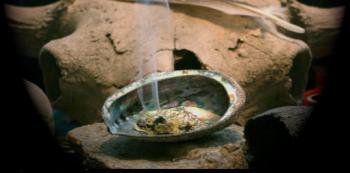Summary
Today, the BC Supreme Court, Honourable Mr. Justice Thompson ruled in the so called “smudging case” that the Petitioner—Ms. Servatius did not establish any infringement of religious freedoms. The Nuu-chah-nulth proclaim a victory for children and their education regarding the culture of First Nations people and in this case, the Nuu-chah-nulth culture.
In November, the Supreme Court of BC heard an application from a Ms. Servatius, a parent with two children in one of School District 70’s schools in Port Alberni. She was challenging a demonstration of Nuu-chah-nulth smudging in a classroom that her daughter and son sat through as they learned of one part of culture. Ms. Servatius claimed it infringed with the religious freedoms of her and her children—rights guaranteed by the Canadian Charter of Rights and Freedoms.
The Nuu-chah-nulth Tribal Council (NTC) intervened because it was important for the court to understand that smudging is not Nuu-chah-nulth religion, that it is part of our culture and only Nuu-chah-nulth can define what religion is to us. Ms. Servatius was trying to redefine Nuu-chah-nulth cultural practices as religious practices to set up a conflict of religions argument. She has no right to define what our religion is.
Judith Sayers, President of the NTC, stated that “Smudging does not fit into the categorization of a religious practice, nor should it be made to. To attempt to do so is to attempt to force ancestral practices into square boxes which the courts have said cannot happen.”
The Court concluded that the petitioner has not established any infringement of religious freedoms and dismissed the petition.
The Nuu-chah-nulth are very pleased that the court saw the importance of teaching our culture in the school system to all children. It is not just one child that would be impacted by this case but all children. This indeed is a victory for all children in School District 70 and elsewhere in the province. This is living up to the Truth and Reconciliation Commission Calls to Action and to positively educate people on what is important culturally to Nuu-chah-nulth. This is also in keeping with the United Nations Universal Declaration of Indigenous Rights and our ability to teach education in our way.
The Nuu-chah-nulth and School District 70 have long had local education agreements and Enhancements agreements that give us a role in teaching and celebrating our culture in the schools. We continue to grow this relationship for the benefit of Nuu-chah-nulth and non-Nuuchah-nulth students alike.
Judith Sayers commented further that our goal is “To make schools a place where Nuu-chah-nulth students could see themselves and their culture reflected, to make the schools our children attend a culturally safe space.”
Judith Sayers continued by saying “The NTC advocates for education for cultural inclusiveness in schools, because all young people have to be taught about cultural differences. This is a crucial part of reconciliation and changing the relationship between Indigenous and non-Indigenous Canadians. People cannot honour differences if they cannot understand it.
Judith Sayers concluded by stating “that this was an incredibly difficult case to go through and the court agrees that some of the Petitioner’s arguments were insensitive (with) regrettable hyperbole especially considering the magnitude of what occurred in the residential school. It was tough for all concerned to sit through this hearing and listen to assertions about Nuu-chah-nulth culture and hope that it never happens again.”

